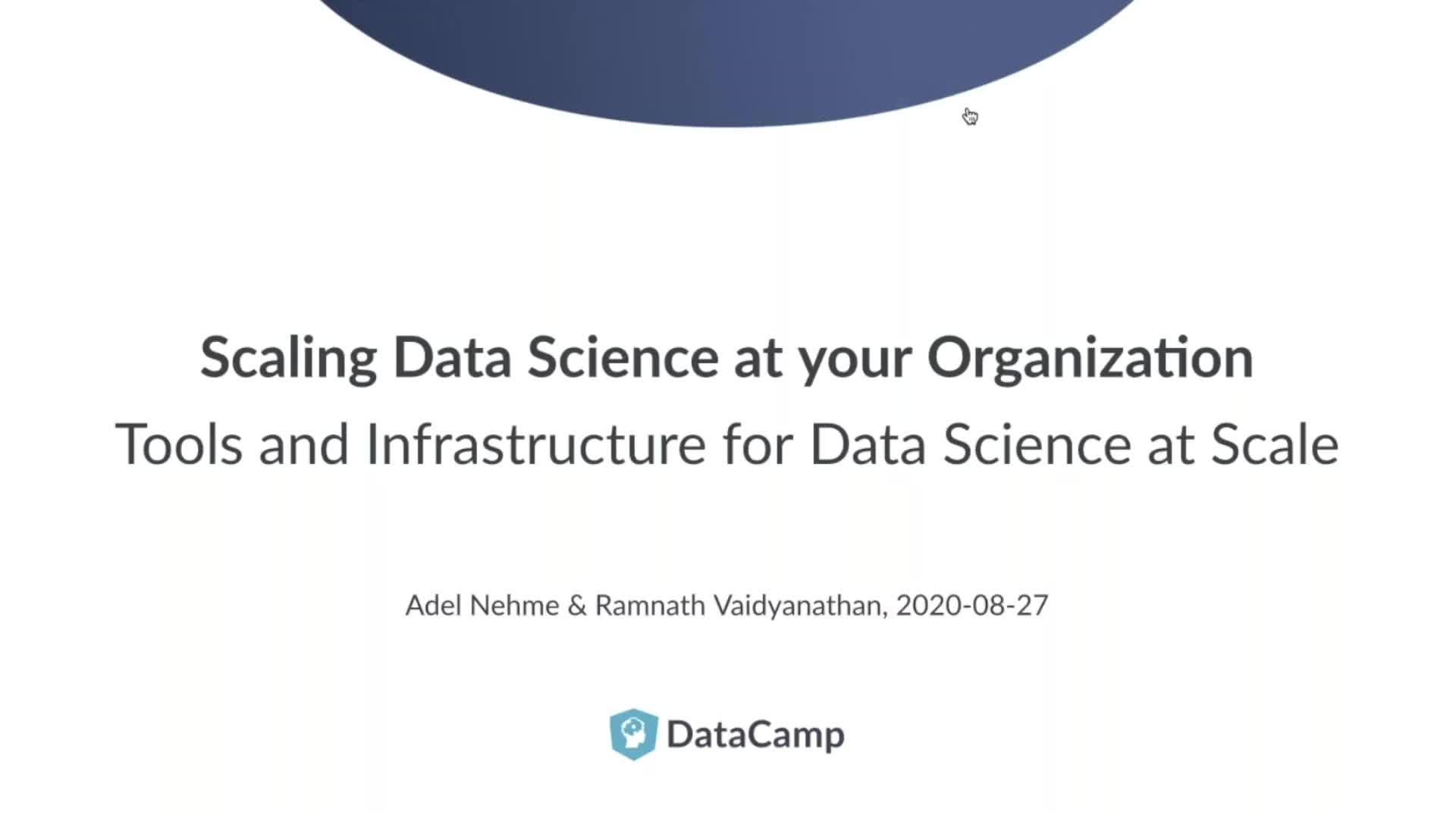Saltar al contenido principalMás información





Altavoces


Ramnath Vaidyanathan
¿Entrenar a 2 o más personas?
Obtenga acceso de su equipo a la biblioteca completa de DataCamp, con informes centralizados, tareas, proyectos y másRelacionado
webinar
Scaling Data Science At Your Organization - Part 3
Learn how to organize your data science team to scale effectively.webinar
Scaling Data Science At Your Organization - Part 1
Find out how to scale data science at your organization with IPTOP.webinar
Democratizing Data Science at Your Company
Data science isn't just for data scientists. It's for everyone at your company.webinar
How Data Governance Enables Scalable Data Science
Learn how data governance enables data democratization and higher trust in datawebinar
Operationalizing Data Within Large Organizations
Demystify the unique challenges to making large organizations data-driven.webinar
Data Skills to Future-Proof Your Organization
Discover how to develop data skills at scale across your organization.Join 5000+ companies and 80% of the Fortune 1000 who use DataCamp to upskill their teams.
Loved by thousands of companies
